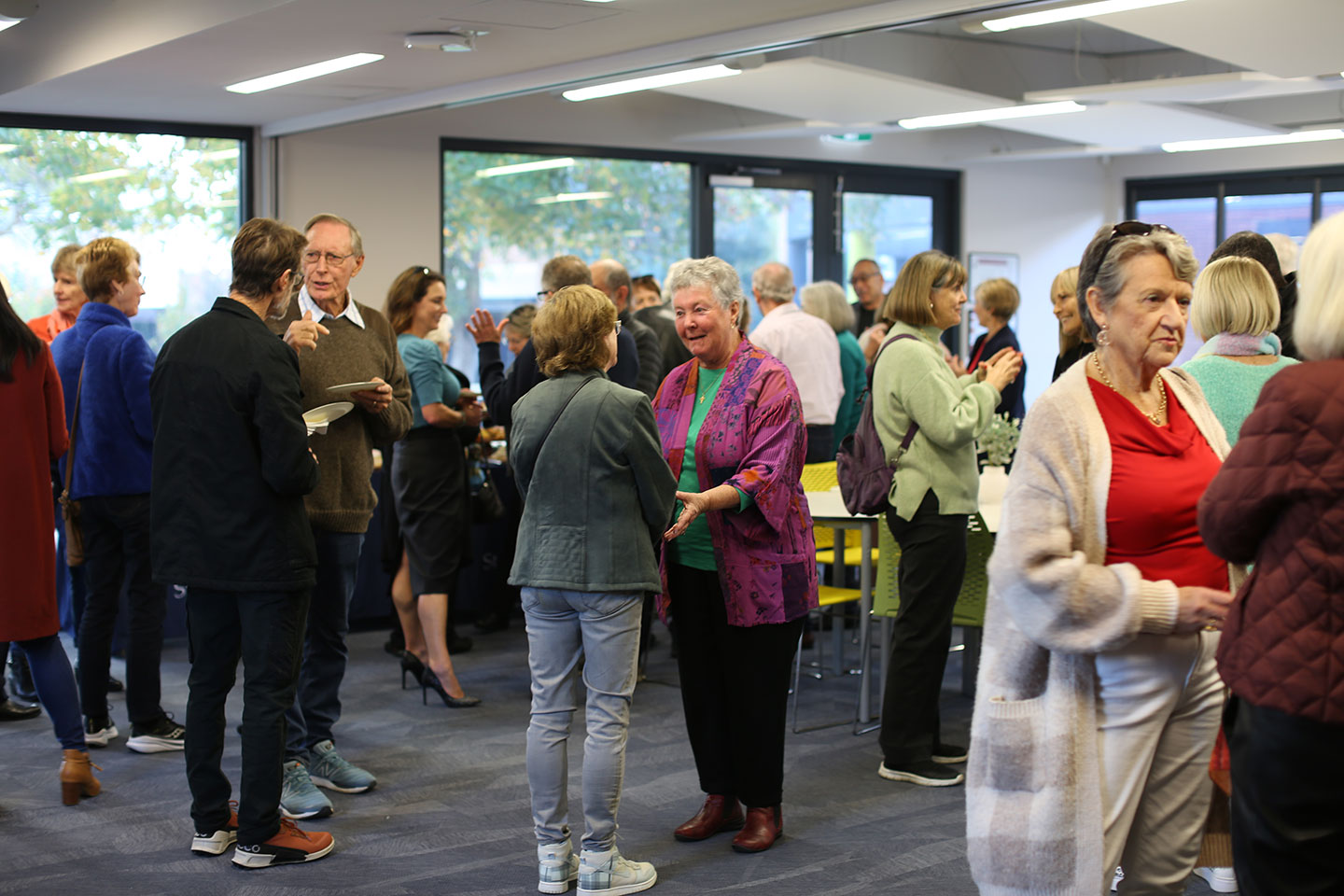

When you leave a workplace would you consider returning? Not to sneak back in after hours to grab your office mug or to casually gloat to former colleagues about how great your new role is. I’m referring to years down the track, would you return to reminisce about the good times?
That’s exactly what transpired at St Stephen’s School over the July school holidays when 50 of our former staff members came together for an afternoon tea on campus to celebrate the School’s 40th anniversary.
The afternoon was initiated by two dedicated former staff members who had each served the School for over a decade. The St Stephen’s School’s workplace culture has left such an indelible mark that a group of staff continue to catch up every year despite having left St Stephen’s School in some cases more than 20 years earlier.
So, in a time when it’s increasingly challenging to attract and retain teachers to the profession, this presented an opportunity to reflect on the factors that have helped to create this legacy.
St Stephen's School was the first day school established by the Uniting Church in WA. It started very humbly in the growing northern suburbs of Perth with eight foundation staff. As the School grew in the 80s and 90s, staff faced many challenges that took them out of their comfort zones however, these challenges were taken on through the strength of teamwork and a ‘can do’ attitude. These obstacles ranged from general school operations to school camps, memorable graduation moments and the myriad of other activities and events that are part of the life of a school.
Shared adversity is a well-known team building strategy and, whilst in the School’s context the challenges were very real rather than fabricated for effect, I feel that this is one of the strongest reasons behind the ongoing commitment of our staff.
I don’t think I can underplay the contribution of our shared faith and spirituality in building this legacy, either. The School’s staff come from various denominations and faith traditions, united in a shared belief of the importance of connection, empathy, respect and an appreciation of each person’s uniqueness which lasts beyond their time at St Stephen’s School.
The very nature of the educational context as a workplace also engenders dedication and loyalty amongst staff. The business of educating and shaping the lives of young people is a long game where continuity of service helps to build staff satisfaction while delivering immeasurable benefits to our community. I’ve observed staff building relationships with generations of young people and their families, becoming deeply invested in supporting their development and success.
I believe that if, as leaders in education, we are as committed to the well-being and development of our people as we are to our students, we create an environment where people want to stay, and indeed may return many years later.
From speaking to returning staff I understand that they are also motivated to retain connection to St Stephen’s School because of a certain pride in what has been achieved over the history of the School, and personal satisfaction in playing a role in this success. Of course, as leaders, communicating organisational history is a balancing act between reflecting on opportunities, celebrating successes and acknowledging the contribution of our forebears. I feel incredibly blessed to be the current Principal and custodian of the St Stephen’s School legacy and anticipate feeling the same personal satisfaction for playing my role when I retire.
The workplace of 2024 is a very different one to the one of 40 years ago when St Stephen’s School was founded. Career expectations are different, communities are different. What I hope and pray for St Stephen’s School, and for all schools, is that we can maintain the golden thread which has created dedication, commitment and a desire for connection.













